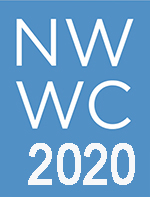 |
||||||||||||||||||
| Subscribe | Past Issues | www.cwwa.ca | Water Source Magazine | ||||||||||||||||||
|
CWWA News
To say that drinking water is an essential service is a major understatement. As emergency declarations are made across Canada, our communities will depend on us to get them safe drinking water delivered right to their home. We need water to drink, water to clean, water in hospitals, etc. We also commit to taking away their waste safely…as long as people cooperate and don’t use their toilets as trash cans. We understand that our audience is concerned about the Novel Coronavirus (COVID-19) and its potential effects on CWWA events, including the Window on Ottawa and the National Water and Wastewater Conference. Our staff are constantly monitoring the situation and closely following recommendations from the Public Health Agency of Canada, regional Health Authorities and the World Health Organization (WHO). At this time we have no plans to cancel the Window on Ottawa or the National Water and Wastewater Conference We are committed to the health, safety, and well-being of our delegates and will continue to monitor the situation as it continues to develop.
In order to build a Conference program that maximizes our diverse delegates and to create a program that will interest everybody we need YOU to share your ideas, concepts, experience and research. We’re planning sessions that will cross all sectors of our industry and connect all of our delegates, but we’ll also feature sessions that will focus on national issues that will appeal to you and your professional focus.
Federal Initiatives
Health Canada, in collaboration with the Federal-Provincial-Territorial Committee on Drinking Water, is proposing to withdraw existing guidelines for Canadian drinking water quality (GCDWQ) for 18 chemical substances, including 14 pesticides, after it was determined that these contaminants are unlikely to be found in Canadian drinking water at levels that may pose a risk to human health. This notice sets out the requirements for reporting to the National Pollutant Release Inventory (NPRI) for two individual calendar years - 2020 and 2021. Information for the 2020 calendar year must be submitted by June 1, 2021. Information for the 2021 calendar year must be submitted by June 1, 2022. Changes to reporting requirements, summarized below, are in effect as of the 2020 and 2021 calendar years.
Collaborative mitigation, adaptation and resilience planning is required to “future-proof” the water sector against the many significant challenges and risks over the coming decades. This Workshop will examine vulnerabilities that must be addressed by collaborative planning on a local, regional, national and global scale pertaining to black swan events and overall water sector security. CWWA is excited to be partnering with the Canadian Water Summit (CWS) to locate our usual program of federal policy and initiatives alongside the CWS. The first day (June 10) will feature CWWA curated content that you all have come to expect from the Window on Ottawa. Together, we will help build important conversations on the policy and governance issues which are key to unlocking Canada’s blue economy. Member News
WEF's Words on Water recently featured an episode on Coronavirus and Water Treatment. Dr. Rasha Maal-Bared is Senior Microbiologist at EPCOR and Scott Schaefer is Wastewater Practice Leader at AE2S and Chair of WEF’s Disinfection & Public Health Committee. In this episode Rasha and Scott discuss the coronavirus, its origin, and the agencies involved in response. They explain why the water sector should pay attention to coronavirus, how treatment addresses the virus, and that water workers should follow standard safety protocol. Rasha and Scott say the water sector should stay informed of developments but remain calm. Snippings & Clippings
ESE Magazine On February 24, 2020, Northwestern Ontario’s Lac Seul First Nation celebrated the grand opening of a new water treatment plant in Kejick Bay, ending a 17-year drinking water advisory that has made life challenging for its nearly 1,000 residents. Global News As a group of eastern Ontario mayors heads to Ottawa to plead for action to curb the effects of flooding from Lake Ontario, advocates are calling for major changes and urgent funding for municipalities. In coastal communities prone to hurricanes and tropical storms, people typically turn to engineered solutions for protection: levees, sea walls and the like. But a natural buffer in the form of wetlands may be the more cost-effective solution, according to new research from the University of California San Diego Water Canada Municipalities across Canada are increasingly looking to stormwater user fees as a way to provide dedicated and sustainable funding for stormwater infrastructure and services. Many stormwater budgets are funded through property taxes, which must also fund many other important municipal services, resulting in uncertain financial allocations for stormwater services from year to year. Water Canada The City of Spruce Grove, based in Alberta, is proposing a utility fee to fund the management of its stormwater infrastructure. This will help ensure the system is adequately supported and remains in good working order. Water Canada The latest research from the Municipal Natural Assets Initiative (MNAI) found that natural assets like wetlands, forests, and ponds help communities in Canada better manage flood risk. AP News Political leaders and environmentalists who have spent years pushing Ohio to adopt a pollution diet to combat toxic algae blooms in Lake Erie say the state’s plan to do just that will fall short if there are no new regulations on farmers. International News
The National Water Reuse Action Plan (WRAP) is a coordinated and collaborative effort across the water user community to advance consideration of water reuse to ensure the security, sustainability, and resilience of our nation’s water resources. On February 27, 2020, EPA Administrator Andrew Wheeler and other federal, state, and local water leaders announced the release of the National Water Reuse Action Plan: Collaborative Implementation (Version 1). Safe and reliable water supplies for human consumption, agriculture, business, industry, recreation, and healthy ecosystems are critical to our nation’s communities and economy. Water reuse can improve the security, sustainability, and resilience of our nation’s water resources, especially when considered at the watershed or basin scale. This link provides a great summary of the information and advice being given by wastewater associations and authorities around the world. In recent weeks, the question of whether Coronavirus is present in faeces and what the consequences are for sewer and wastewater treatment operations has been raised. Evidence was emerging that the virus had been identified in the faeces of some patients, and this has been confirmed by the WHO in its posting of 3rd March. Here comes our linklist: |
||||||||||||||||||




